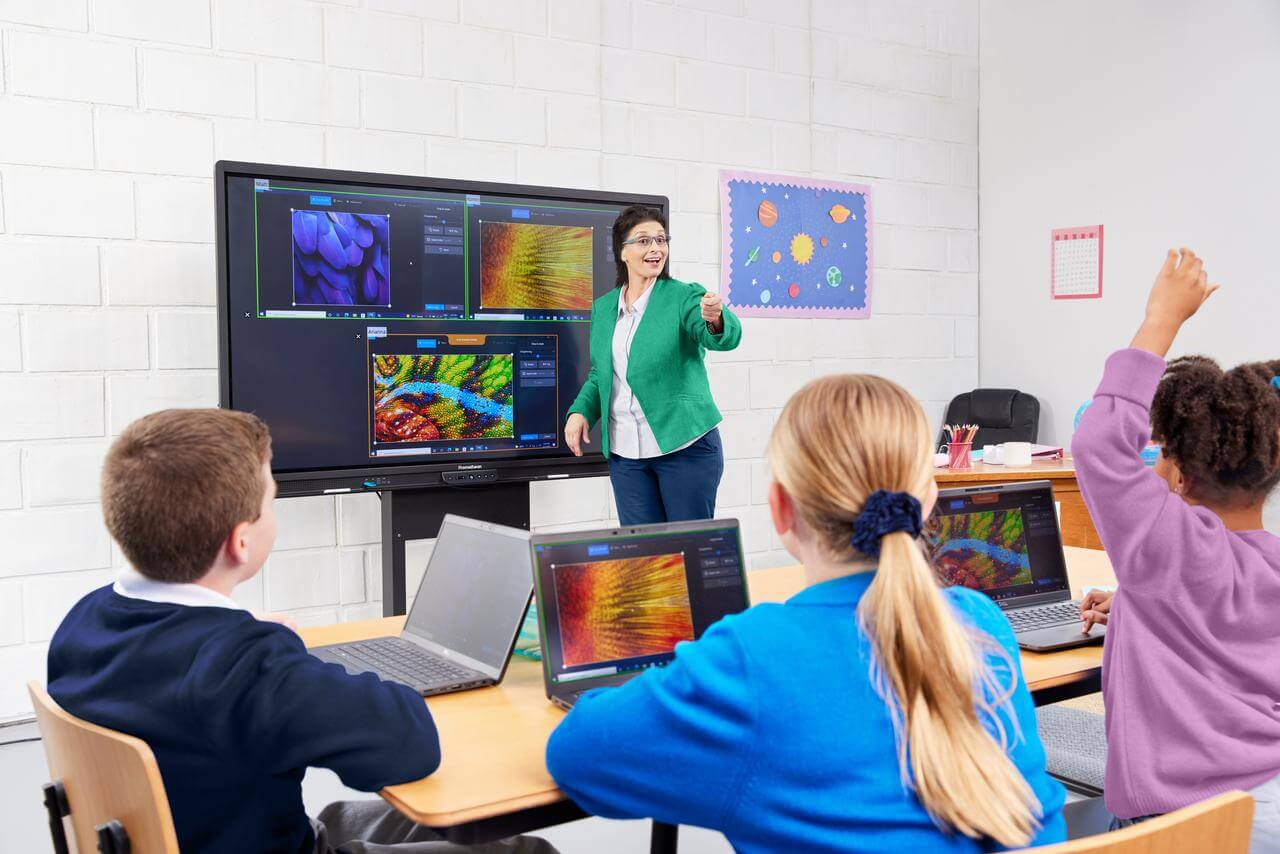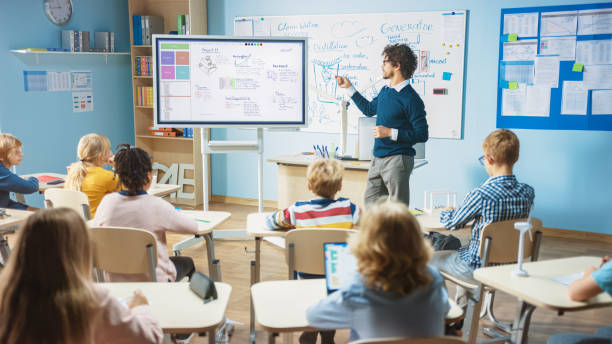Exploring the Different Teaching Approaches in Key Scientific Research Education And Learning Today
The landscape of key science education and learning is progressing, with numerous mentor approaches getting importance in contemporary classrooms. Inquiry-based understanding, hands-on experiments, and the integration of technology are redefining how instructors engage young minds. In addition, joint methods and set apart direction are being utilized to deal with the diverse demands of students, enhancing both engagement and understanding. As we check out these methods, concerns occur about their performance and the ramifications for future educational practices. What might these changes in method mean for the future generation of students?
Inquiry-Based Knowing
Inquiry-Based Understanding (IBL) is an instructional method that encourages trainees to explore scientific principles through wondering about, investigation, and hands-on trial and error. This approach highlights the duty of students as active individuals in their understanding, promoting critical thinking and analytical skills. By engaging with real-world inquiries, students end up being curious and determined, which boosts their understanding of clinical concepts.
In IBL, educators serve as facilitators, directing pupils as they navigate their inquiries as opposed to providing details directly. This student-centered method permits distinction, suiting various learning rates and designs. Pupils develop abilities in formulating theories, creating experiments, and assessing information, which are vital for clinical literacy.
In addition, IBL promotes cooperation amongst pupils, urging them to share searchings for and ideas. This collective query promotes social skills and a sense of neighborhood within the class. Furthermore, the procedure of questions encourages durability, as students discover to embrace failure as a stepping rock towards understanding.
Hands-On Experiments
Hands-on experiments are a vital component of effective scientific research education, matching the concepts of inquiry-based discovering. These experiments allow pupils to engage straight with scientific principles, promoting a deeper understanding via experiential knowing. By controling products and observing results, young students can comprehend abstract theories in substantial methods.
Such tasks promote vital reasoning and analytical abilities, as students assume outcomes, conduct experiments, and assess outcomes. This procedure encourages them to ask concerns, improve their understanding, and develop a clinical attitude. Hands-on experiments can be tailored to varied discovering styles, making certain that all trainees have the opportunity to engage meaningfully with the web content.
Furthermore, hands-on experiments frequently encourage collaboration among peers, advertising teamwork and interaction skills. Operating in teams makes it possible for pupils to share concepts, talk about searchings for, and pick up from one an additional, which enhances their overall academic experience.
Integrating hands-on experiments right into the primary science curriculum not just enriches the discovering atmosphere yet also grows a long-lasting interest in science. By proactively joining their education, students are more probable to create an interest for clinical questions that extends beyond the classroom.
Technology Combination
Integrating innovation right into primary science education has become significantly crucial in cultivating student interaction and enhancing learning outcomes. Using digital tools, such as interactive simulations, online labs, and educational software application, supplies trainees with possibilities to explore scientific principles in innovative ways. These sources promote a much deeper understanding of complex topics by allowing students to picture and control variables that would be impractical in a conventional class setup.
Moreover, modern technology assimilation motivates customized learning experiences. Pupils can proceed at their own pace, revisiting tough principles via multimedia resources, which accommodate different learning designs. This versatility not just supports private development however also grows a sense of freedom in learners.
In addition, innovation offers as a bridge to real-world scientific research, linking students with present study and specialist go to this site payments. Accessibility to scientific journals and on-line data sources broadens trainees' perspectives on scientific questions and cultivates critical believing abilities.
Collaborative Knowing
Joint learning plays a crucial duty in primary scientific research education and learning by fostering team effort and interaction skills among pupils. This method urges students to collaborate, share understanding, and take part in problem-solving, which enhances their understanding of scientific concepts. By taking part in group tasks, pupils discover to verbalize their concepts, pay attention to varied viewpoints, and negotiate services, all of which are crucial skills in both real-world and scholastic contexts.

Research study suggests that collective understanding can cause increased inspiration and interaction in science topics, as students discover satisfaction in common experiences (primary science tuition Singapore). In addition, this approach prepares trainees for future collaborative ventures, equipping them with the abilities essential for efficient synergy in college and professional atmospheres. Inevitably, embracing collective discovering in primary science education and learning can considerably enhance the learning experience and advertise a much deeper understanding of clinical inquiry
Separated Instruction

Differentiated instruction can manifest in various methods, such as varying the web content, procedures, or items of discovering. For example, educators might utilize tiered tasks that provide differing degrees of intricacy, permitting students to work at their particular readiness degrees. Furthermore, flexible organizing approaches can promote cooperation among pupils with various abilities, promoting peer discovering.
Evaluation plays a crucial role in this strategy, as it notifies instruction and helps educators understand each pupil's special needs. Developmental analyses, such as tests and monitorings, can guide teachers in readjusting their methods to enhance finding out results. primary science tuition Singapore. Inevitably, by implementing differentiated guideline in primary scientific research education, instructors can cultivate an extra efficient and fair discovering atmosphere, encouraging all students to reach their full possibility in understanding clinical phenomena
Final Thought
In recap, the diverse training techniques in primary scientific research education and learning, including inquiry-based discovering, hands-on experiments, technology integration, collective understanding, and distinguished guideline, jointly contribute to an extra reliable learning atmosphere. These techniques advertise important reasoning, problem-solving skills, and a deeper understanding of scientific ideas. By applying these strategies, educators can produce appealing and supportive class that resolve the diverse needs of trainees, eventually promoting a long-lasting rate of interest in scientific research and improving academic achievement.
Inquiry-Based Knowing (IBL) is a pedagogical technique that go to my site urges students to discover clinical principles via wondering about, investigation, and hands-on testing.Collective discovering plays a crucial function in key scientific research education and learning by promoting team effort and communication abilities among pupils.Research study shows that collaborative learning can lead to increased inspiration and involvement in science subjects, as trainees find enjoyment in common experiences.In promoting an inclusive learning atmosphere, distinguished instruction arises as a crucial technique to suit the varied needs and capacities of trainees in primary scientific research education and learning. Ultimately, by implementing set apart direction in primary scientific research education and learning, educators can grow a more fair and effective discovering environment, equipping all students to reach their complete capacity in understanding clinical phenomena.
Comments on “Tailored Primary Science Tuition Singapore for Your Child’s Success”